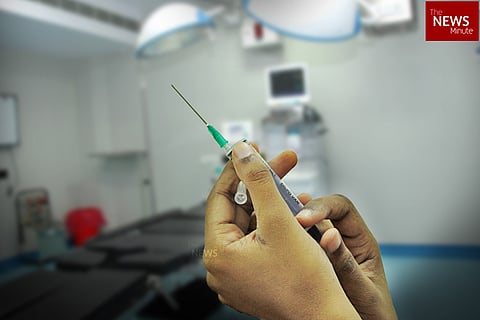

At least 10 children between 8 and 15 years old from Sathyamangalam have been admitted to Coimbatore Medical College and Hospital after they were found to have contracted diphtheria. Earlier this month, after two children reportedly succumbed to the infection, officials stepped up measures to ensure that children were screened and immunised appropriately after it was found that several children had not been given a booster dose required at age 10.
“We found that several of the children had not been given the vaccine properly. It is given at 10 and 15 weeks following birth, then again at around 10 months of age. Following this it is recommended that children get another 2 booster doses. Many of the parents in this region assumed that since the children were older, there was no longer a need for the children to get the required vaccines. This has led to the cases which have been seen in the area,” stated Dr K Kolandaswamy Deputy Director of Public Health (DDPH).
Medical officials have now been stationed at a Primary Health Centre in Sathyamangalam to monitor for cases.
According to the Indian Academy of Pediatrics (IAP), the diphtheria vaccine can be given along with the tetanus toxoid vaccine (TT). It can be given as a pentavalent vaccine (effective against 5 other infections in addition to diphtheria) or can be given via a trivalent vaccine, DTaP, which protects against diphtheria, tetanus and pertussis. Booster doses are usually given as DT (diphtheria and tetanus) injections.
Earlier in July, two children from a tribal hamlet on the outskirts of Coimbatore lost their lives to diphtheria.
“At present around 10 children have been admitted to our hospital and they are all undergoing treatment and are stable. We will plan to discharge them soon,” said Dr Ashokan, Dean of Coimbatore Medical College and Hospital (CMCH). He also added that since the cases were sporadic, it would be incorrect to refer to it as an outbreak.
Diphtheria is an extremely contagious disease which is caused by the organism Corynebacterium diphtheriae. The infection affects the throat and airways and can go on to affect several other organs if not controlled. It is spread via air through the form of droplets. Children tend to be most prone to contracting the infection, though vaccination has proven to be extremely effective against the disease.